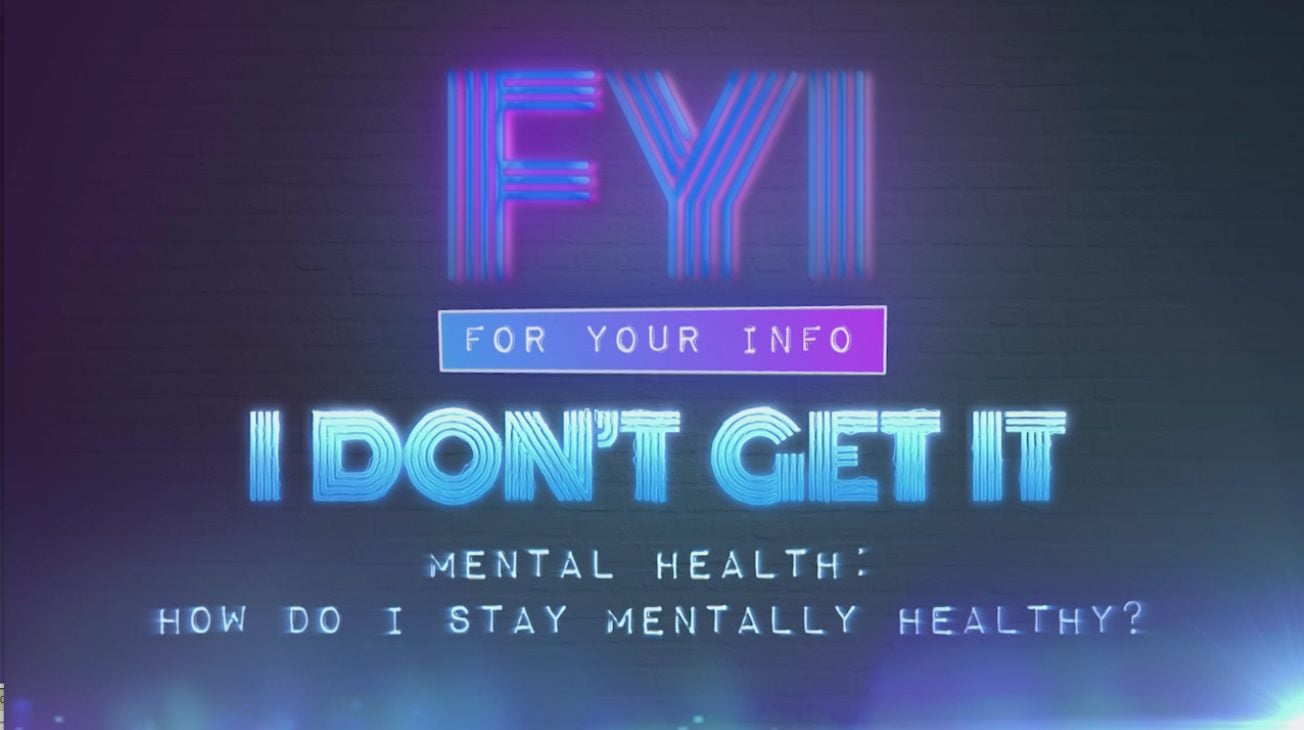Why is remembrance important?
Maya asks former Royal Marine JJ Chalmers why we’re asked to wear poppies every November.




Supported by the BFI, Sky Kids and FYI
Sky Kids FYI presenter Ruby asks why so many young people are struggling with their mental health. With all the stress of modern living, what can we do to make sure we look after our mental health?
“Hello! How are you?” It’s such a simple question, but giving an honest answer can be quite tricky, right? sometimes we feel fed up, or that we’re not doing as well as our friends at school, or that no one likes us – but is this a mental health issue or not?
We all know when there’s something physically wrong with us, like a broken arm or a stomach ache, but your mental health is much harder to work out. Is basically how you’re feeling in your mind.
If you’re mainly happy and able to cope with stressful things, like an exam paper, then you’ve probably got good mental health. But if you’re nearly always feeling sad or unhappy or, even worse, like that all the time, it might be a warning sign that you need to get some help. Maybe you’re not sleeping because you’re constantly worried.
Here’s the thing. If you’re suffering with poor mental health, you’re not alone. The experts reckon that 1 in 8 of us are dealing with some sort of mental health issue at any one time – and it seems to be getting worse.
To help us find out why so many kids are struggling with mental health, we asked child psychologist Emma Kenny, who helps loads of kids in her clinic. She told us: “First of all, you’ve got to remember there are lots of different types of mental health issues. One of the most common types is anxiety. Everyone gets a little bit anxious and worried at times, but it becomes an illness when it goes on for months and it really stops you living a normal life. As for why there seems such an increase, well, I think that social media plays a big part in it. It’s quite easy for people to be bullied online or to be teased for the way that they look, but you’ve got to remember that your true friends will always accept you exactly as you are.”
“Other issues that can cause mental health problems is that four million children are living in poverty these days. And you can understand that if you feel stuck in a situation like that , then it can lead to making you feel more down and depressed than you if you were in an easier.”
“The most important thing is to talk to an adult that you can trust. It might be your parents or a teacher, but you really shouldn’t be ashamed of anything that you feel, because it’s not your fault that you’re feeling unwell, and there are so many people that can help you. Usually, that will mean talking through your issues and problems with a professional counsellor, and in some case your doctor might be able to speak to you about taking some medication. It’s whatever works for you, that’s what’s important.”
Here’s the good news. There are lots of small things you can do that make a big difference to your mental health, like running, swimming or playing football, for example. Exercise is not just good for your body, it’s good for your mind. But if the idea of getting sporty fills you with horror, then why not try a different hobby, like learning to play an instrument, dancing or even painting?
Emma has some more advice: “I know we all love our gadgets, me included, but we don’t have to use them all the time. Sometimes it’s good to talk to your friends face to face instead of messaging them or sending them pictures. and take lots of screen breaks, it’ll really help you to stay mentally healthy.”
And there are details about where to help help and support on the FYI page.
Click here to watch more of our I Don’t Get It explainer films.
Topics: Mental Health
Maya asks former Royal Marine JJ Chalmers why we’re asked to wear poppies every November.
FYI explains what is behind the latest conflict in Lebanon.
Explore different kinds of energy that are less damaging to the planet than fossil fuels.